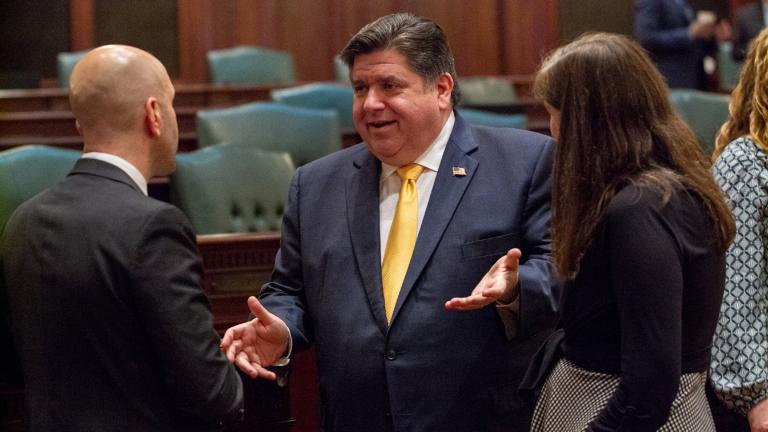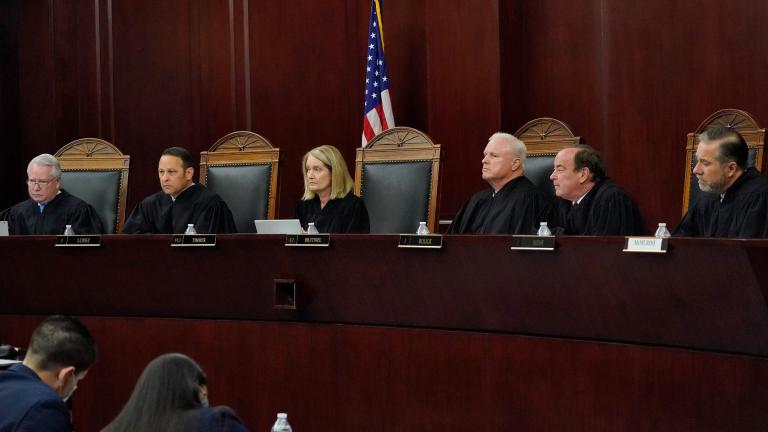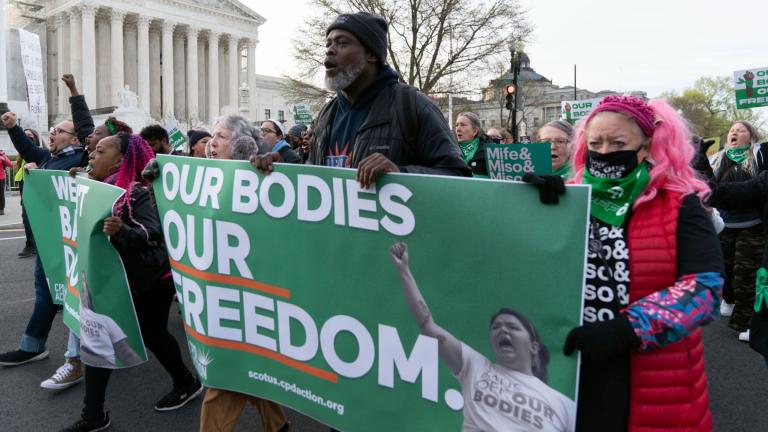The pandemic has meant many more people are able to access a doctor’s office through a computer screen, instead of in person.
That includes people seeking telemedicine abortions.
For a telemedicine abortion, a patient will have a virtual health screening done by a qualified health professional to ensure they’re an appropriate candidate for the care. The medication is authorized for pregnancies up to 10 weeks, according to the FDA. Then, the health professional explains how the two pills work and who to contact for additional help, said Dr. Katie McHugh, an Indiana-based OBGYN and abortion provider.
Once that process is complete, the health professional can mail patients the pills.
However, after the Dobbs Supreme Court decision, the legality of the practice in some states isn’t clear for providers and patients.
Katie Watson, associate professor of medical education, medical social sciences, obstetrics and gynecology at Northwestern University, said the situation is complex. Now that some states have banned abortion, there are increased obstacles to the legality of telehealth abortion.
In Illinois, where the practice is legal, physicians are allowed to provide reproductive care to people, however they cannot treat patients in other states that they are not licensed in or states that banned a particular procedure, Watson said.
If someone from another state where access is restricted were to get a telemedicine abortion from an Illinois doctor, they’d have to be within the borders of Illinois for the appointment, she added.
“We have had patients cross the border, drive from their own state to their telehealth visit because that’s the only way that they can get the care they need,” said Brigid Leahy, vice president of public policy at Planned Parenthood of Illinois.
The gray area of legality comes up with some doctors who have used the remote nature of telehealth to provide care. One doctor, NPR reports, is physically located in Indiana where there are abortion restrictions, but has a license to provide telehealth in another state where care is legal.
An Indiana judge blocked the state’s abortion ban from being enforced last month.
McHugh said it’s been confusing for patients as to what’s legal, available and accessible to their communities.
“Now that the ban has been enjoined in Indiana, we’re trying to ramp back up our services so that we can help with that patient burden of having to go out of state,” McHugh said. “We sent so many patients [during the ban] and now it’s difficult to ramp back up.”








